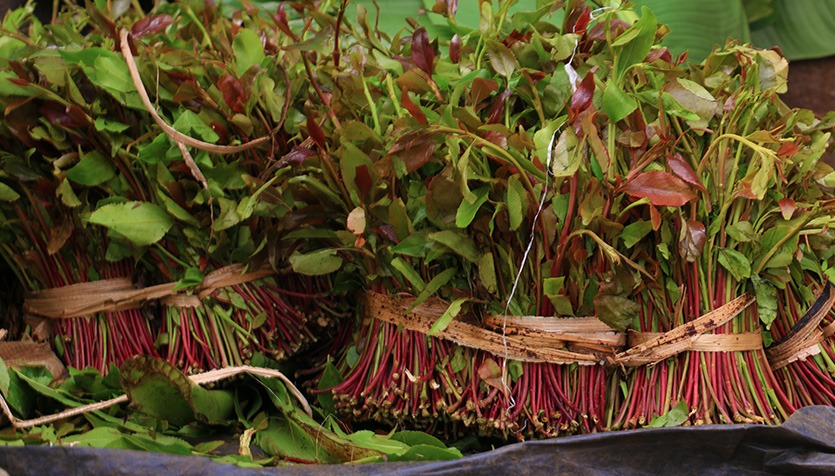
Recent reports from Somalia have stated that Ethiopian khat traders have made headway into the Somali market. This development has been cited as a major concern for Kenyan traders that enjoyed a monopoly on the Mogadishu market for decades.
Considering that Ethiopian traders held a similar monopoly on the Hargeisa market due to high taxes, the penetration of Ethiopian traders into the Mogadishu market may mean a monopoly on the entire Somali market.
According to Somali media a first shipment of about 30 tons of khat (also known as miraa), was delivered on Saturday to Aden Adde International Airport.
In concordance with Ethiopian traders being allowed to trade in the capital, the Somali government has also adopted heightened security policies in order to curb the illicit entry of the plant through the sea and the city of Mandera (Kenya).
Kimathi Munjuri, head of the Nyambene Miraa Traders Association, says that policies to facilitate the entry of Ethiopian traders into the market and lockout Kenyan traders are based on the current Somali President’s dislike for Kenya.
Policies going back to March of 2020 barring Kenyan farmers and traders from providing khat to Somalia have been cited by critics as evidence of the animosity towards anything Kenyan that the current Somali administration harbors.
The President of Somalia, Mohamed Farmaajo, has previously acknowledged the tilt of these policies against Kenyans, but states that this is not due to any bias (or COVID-19 as had been previously reported) but rather a response to Kenya’s severe stance on Somali imports.
Mr. Munjuri and Mohamed Quresh of the Maua Miraa Traders have asked the Kenyan government to intercede on their behalf and initiate diplomatic talks for a more equitable solution.
